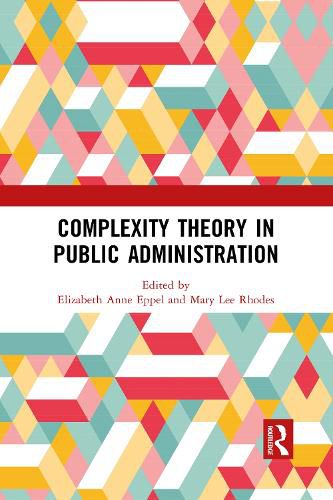Readings Newsletter
Become a Readings Member to make your shopping experience even easier.
Sign in or sign up for free!
You’re not far away from qualifying for FREE standard shipping within Australia
You’ve qualified for FREE standard shipping within Australia
The cart is loading…






This book reframes theoretical, methodological and practical approaches to public administration by drawing on complexity theory concepts.
It aims to provide alternative perspectives on the theory, research and practice of public administration, avoiding assumptions of traditional theory-building. The contributors explain both how ongoing non-linear interactions result in macro patterns becoming established in a complexity-informed world view, and the implications of these dynamics. Complexity theory explains the way in which many repeated non-linear interactions among elements within a whole can result in processes and patterns emerging without design or direction, thus necessitating a reconsideration of the predictability and controllability of many aspects of public administration.
As well as illustrating how complexity theory informs new research methods for studying this field, the book also shines a light on the different practices required of public administrators to cope with the complexity encountered in the public policy and public management fields. This book was originally published as a special issue of the Public Management Review journal.
$9.00 standard shipping within Australia
FREE standard shipping within Australia for orders over $100.00
Express & International shipping calculated at checkout
This book reframes theoretical, methodological and practical approaches to public administration by drawing on complexity theory concepts.
It aims to provide alternative perspectives on the theory, research and practice of public administration, avoiding assumptions of traditional theory-building. The contributors explain both how ongoing non-linear interactions result in macro patterns becoming established in a complexity-informed world view, and the implications of these dynamics. Complexity theory explains the way in which many repeated non-linear interactions among elements within a whole can result in processes and patterns emerging without design or direction, thus necessitating a reconsideration of the predictability and controllability of many aspects of public administration.
As well as illustrating how complexity theory informs new research methods for studying this field, the book also shines a light on the different practices required of public administrators to cope with the complexity encountered in the public policy and public management fields. This book was originally published as a special issue of the Public Management Review journal.